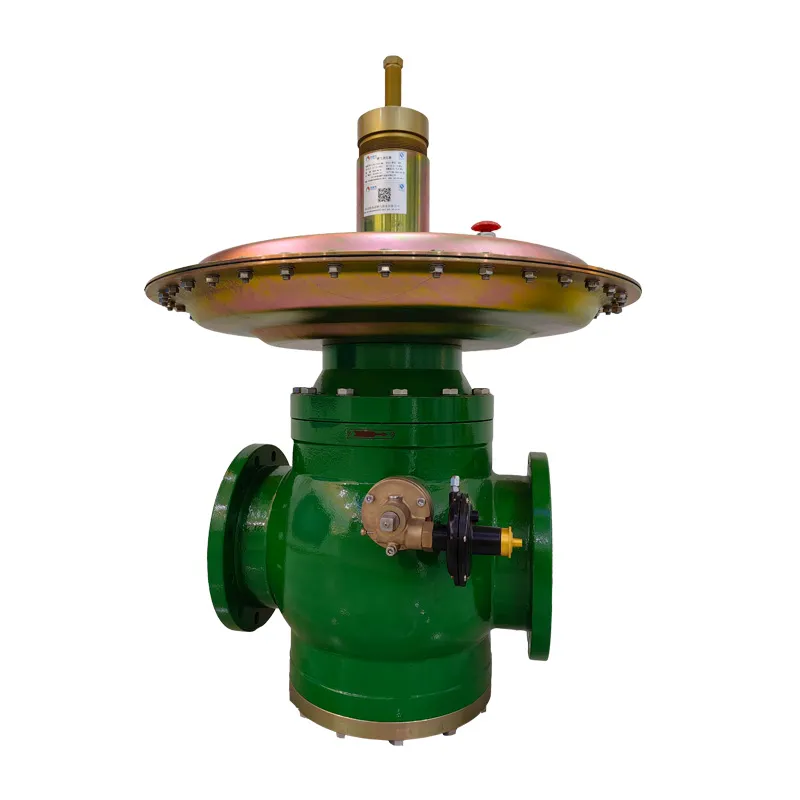
Sep . 18, 2024 11:01
Back to list
natural gas valve
The Role of Natural Gas Valves in Modern Energy Systems
Natural gas is one of the most important energy sources in the world today, powering everything from home heating systems to industrial processes. A crucial component in the transportation and management of natural gas is the valve. Natural gas valves play a vital role in regulating the flow, pressure, and safety of gas within pipelines and various applications.
Natural gas valves come in many types, including gate valves, ball valves, and globe valves, each serving specific purposes. Gate valves are widely used to completely stop or allow the flow of gas, making them ideal for on/off operations. Ball valves, on the other hand, provide quicker shut-off capabilities and are often used in applications requiring frequent operation. Globe valves are used when precise flow regulation is necessary.
One of the essential functions of natural gas valves is to ensure safety. Given the flammable nature of natural gas, the valves are equipped with safety features designed to prevent leaks and control excessive pressure buildup. Pressure relief valves are critical in this context, as they enable the safe release of gas if pressure exceeds the system's designed limits. This prevents potentially catastrophic failures that can occur in high-pressure systems.
natural gas valve

Moreover, natural gas valves are integral to the maintenance of pipeline integrity
. Regular inspection and maintenance of these valves are essential to ensure their proper functioning. Gas suppliers and utility companies often implement rigorous monitoring systems that include hazard assessments and valve performance checks to ensure the safety and efficiency of gas distribution networks.In addition to safeguarding human lives and property, natural gas valves also play a role in improving energy efficiency. By regulating the flow of gas, these valves help optimize the performance of heating systems and gas-powered equipment. Efficient gas management results in less waste and lower emissions, contributing to a more sustainable energy framework.
As the global energy landscape shifts towards cleaner sources, the importance of natural gas as a transitional fuel cannot be overstated. Valves designed for natural gas applications are evolving alongside these changes. New technologies, such as smart valves integrated with IoT sensors, are emerging, allowing for real-time monitoring and data analytics. This evolution helps operators detect issues before they escalate, further enhancing safety and efficiency.
In conclusion, natural gas valves are essential components of modern energy systems. Their ability to regulate flow, ensure safety, and enhance efficiency makes them paramount in the operation of natural gas infrastructure. As we move towards a more sustainable energy future, the continued innovation and reliability of natural gas valves will be crucial in managing this vital resource effectively. Emphasizing their role not only highlights the technical aspects of energy management but also underscores the importance of safety and environmental stewardship in today's gas networks.
Next:
Latest news
-
Safety Valve Spring-Loaded Design Overpressure ProtectionNewsJul.25,2025
-
Precision Voltage Regulator AC5 Accuracy Grade PerformanceNewsJul.25,2025
-
Natural Gas Pressure Regulating Skid Industrial Pipeline ApplicationsNewsJul.25,2025
-
Natural Gas Filter Stainless Steel Mesh Element DesignNewsJul.25,2025
-
Gas Pressure Regulator Valve Direct-Acting Spring-Loaded DesignNewsJul.25,2025
-
Decompression Equipment Multi-Stage Heat Exchange System DesignNewsJul.25,2025

